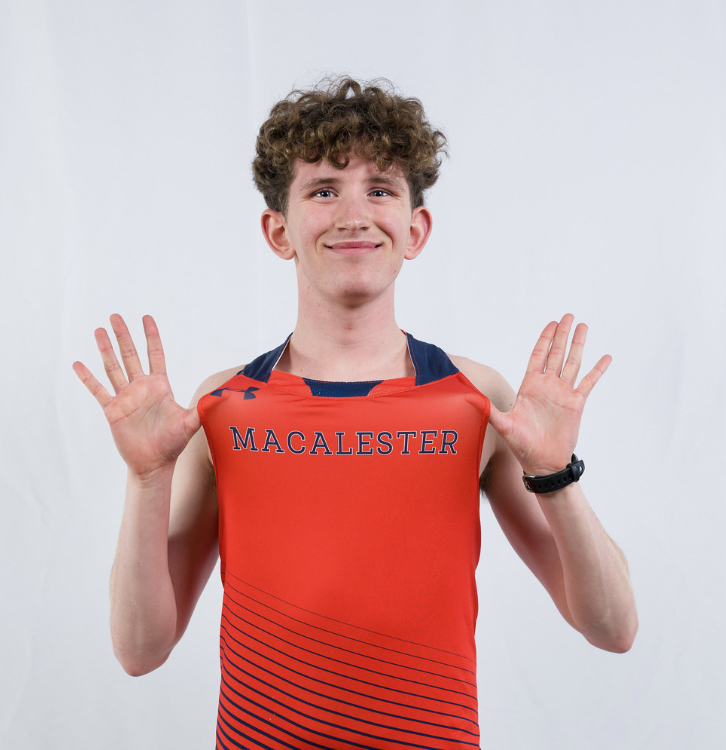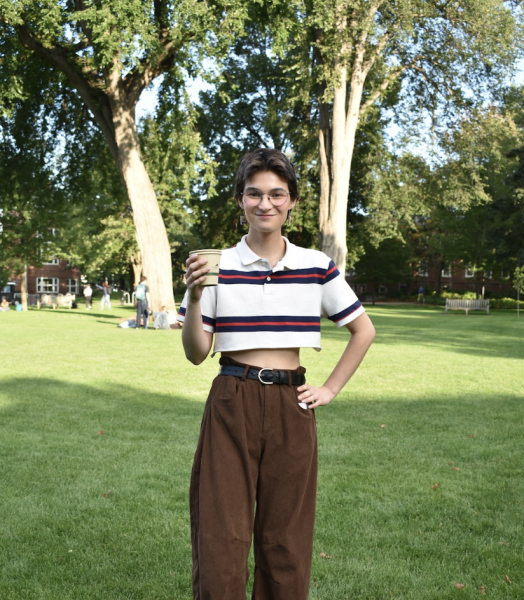On Wednesday, Feb. 5 the Election Procedures Committee (EPC) of Macalester College Student Government (MCSG) announced the results of their spring special election which, due to new vacancies created after the first Special Election, necessitate a second spring special election. Unlike the candidates for MCSG’s current spring special election, newly elected Financial Affairs Committee (FAC) Chair David Christenfeld ’27, Junior Class Representative Harmony-Keli Tomety ’26 and Sustainability and Infrastructure Liaison Sam Parsons ’28 all ran unopposed in their respective elections.
This year’s spring special election saw an uncommon vacancy for the FAC Chair position. Although FAC Chairs typically serve for the entire academic year, being one of the only MCSG
Executive Board positions that does not allow candidates to run on a split ticket, former FAC Chair Luke Evans ’26 stepped down to pursue an internship. Prior to MCSG’s spring special election, newly elected FAC Chair Christenfeld was already serving as interim FAC chair, having been appointed by President Joel Sadofsky ’25 at Evans’s recommendation.
Christenfeld was first introduced to MCSG by completing the yearly budgeting process for leaders of student organizations, Budget Bonanza, for the Table Tennis Club, which Christenfeld founded in his first year. After participating in FAC as an at-large member last spring semester, Christenfeld decided to run for Sophomore Class Representative and serve on the FAC after his election.
“Although the FAC deals with student organizations all the time, they take a very administrative look at it,” Christenfeld said. “I think having some more opinions from people who have actually been on the student org side is what I want to bring to FAC.”
For Christenfeld, this looks like changing FAC’s Financial Code — which the LB voted to ratify during their meeting on Thursday, Feb. 6 — to make the document more accessible. In conjunction with clarifying how student organizations can access funding, Christenfeld is considering adding more opportunities for student organizations to request funds. Currently, all student organizations must apply for more funding from MCSG through Budget Bonanza, which occurs once in the spring, but Christenfeld believes that holding a second Budget Bonanza may provide more flexibility.
“I really wanted to talk to all org leaders to see if that’s something that they were interested in,” Christenfeld said. “Because obviously, a lot of the work will fall on them because they have to make two budgets instead. I have to make a budget every year for the [Table Tennis] Club, and I know how much work that can be.”
Responses from student organization leaders have been mixed so far, according to Christenfeld. However, potentially offering two Budget Bonanza sessions is just one way Christenfeld plans to address budget cuts for student organizations.
“The cut that student orgs got last year was insane: 48 percent. A lot of that comes from the fact that we encourage student orgs to request anything that they could need, but we only have a limited amount of money to give out. So, we’re trying to make sure that orgs are requesting only what they think they’ll actually spend.”
While some student organizations may use all of their allocated funding and struggle due to the yearly across the board budget cuts, other student organizations frequently have extensive leftover funds which are then rolled over to next year. In past years, this has resulted in around 40 percent of the total funds allocated to student organizations going completely unspent, according to Christenfeld. He believes that if student organizations were to request only the money they needed, it could reduce the yearly across the board cuts to around eight percent.
In order to further ensure student organizations do not request more money than needed, Christenfeld plans to evaluate how much money student organizations have requested and spent in the past when allocating funds.
“If there are organizations that requested, let’s say, $1,000 and have spent the entire $1,000, then that shows that the money they’re requesting is really what they’re gonna be using,” Christenfeld said. “If we have orgs that are requesting $1,000 and spending $200, then the question is just about whether money going to those orgs will be as well used.”
Like Christenfeld, newly-elected Junior Class Representative Harmony-Keli Tomety ’26 also aims to support student organizations in her work with MCSG.
“There’s a lot of resources at Macalester; I’ve noticed that here,” Tomety said. “But sometimes people are not aware of what they are able to take advantage of. We need to do a better job of showcasing and telling people: ‘here are things that are designed for you, made by people like you, that you should definitely come and join and become a part of.’”
Tomety, a student athlete on the track team and a member of the African Music Ensemble, underscored the importance of finding community and helping others seek out support through both extracurriculars and class-wide events. She expressed excitement about planning themes and activities for class nights, including a potential karaoke night and game night.
In addition to focusing her efforts on community building events, Tomety also plans on using her position on MCSG to uplift more student perspectives on divestment from Israel’s genocide of Palestinians.
“I feel like we’re trying to guide [the Board of Trustees and college] into aligning with what most of the school wants,” Tomety said, “What the class of 2026, [what] all the classes want, is that we want to end study abroad trips in Israel… I mean, we’re talking about the student body here, and we’re also paying tuition as well. So we don’t want to see our money go to something that we don’t stand for and is a genocide.”
Having attended a large, predominantly white high school, where student government elections functioned like “a bit of a popularity contest,” according to Tomety, she developed skills in advocacy and navigating bureaucracy through other outlets, like congressional debate. When she noticed vacancies for junior class representative, Tomety saw an opportunity to not only pursue her long-term interest in student government, but also represent herself and others in a position that she hadn’t seen herself represented in previously.
“The chance to be able to be the representation I wanted to see at Macalester was an opportunity that was too great to not take,” Tomety said.
The recent presidential election, as well as the Macalester community’s response, also motivated Tomety to run for MCSG.
“I was very dissatisfied with the lack of civic engagement, and everyone had a multitude of reasons, but it’s just very disappointing to see,” Tomety said, “And the state of our country is… a big question mark. This place is my home, America, so not being able to have a say or an influence on things that very much affect me — it was another catalyst for me, just not wanting to be misrepresented, quite honestly.”
First-year Sam Parsons ’28 was inspired to run for Infrastructure and Sustainability Liaison after hearing about the vacancy from other members of the cross country team and realizing the positioning aligned with his interest in environmentalism and biking. A member of MacBike and frequent user of the DeWitt Wallace Library’s bike check-out service, Parsons hopes to make biking more accessible to Macalester students by improving the quality of bikes available for check out.
“The biggest program I’ve used on campus is the bike program, and I think it’s really cool,” Parsons said. “I joined MacBike to work on that. But what I realized is, so many people [are] having these problems where their bikes will break down mid ride… And I think that’s a problem that student government needs to address.”
Currently, Parsons does not have other initiatives that he wants to pursue in his role on MCSG.
“I’m a first-year; I don’t know very much about the campaigns and the larger issues,” Parsons said. “I think over time, [I will know more], and I’m very grateful that I have the privilege and opportunity to work on issues as they come up.”
Ballots for MCSG’s second spring special election open at 1 p.m. on Friday, Feb. 14 and close at 1 p.m. on Monday, Feb. 17.
*Lulu Newhart-Roarick contributed to the reporting for this story.





